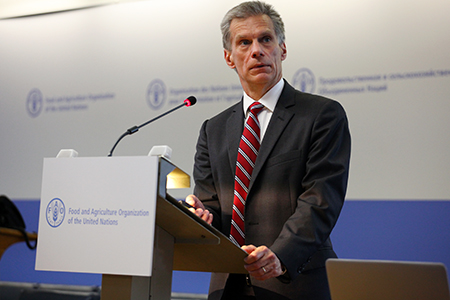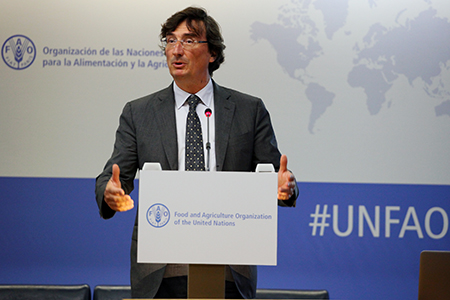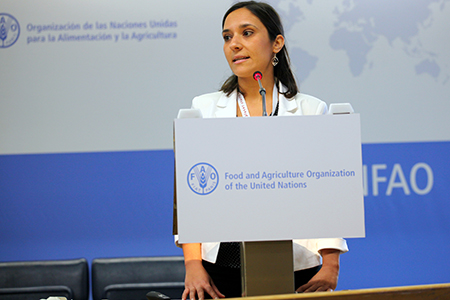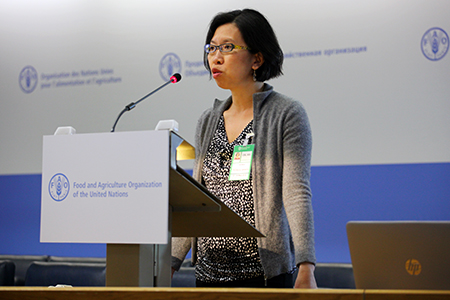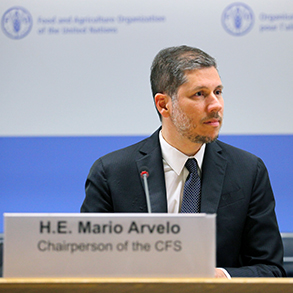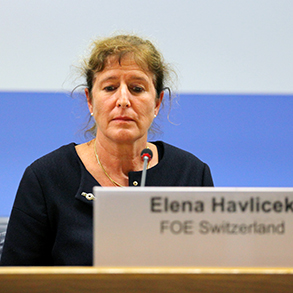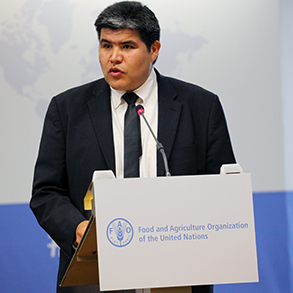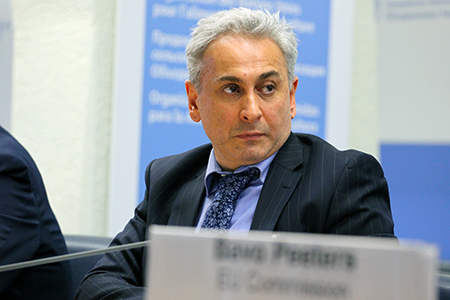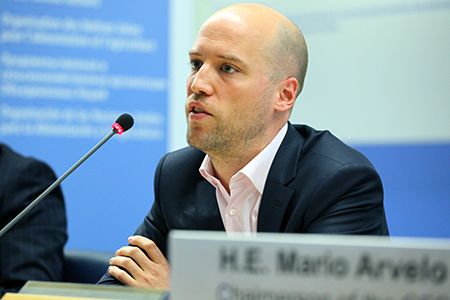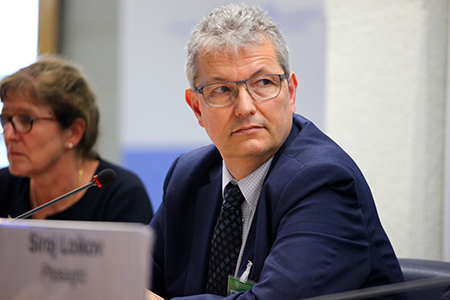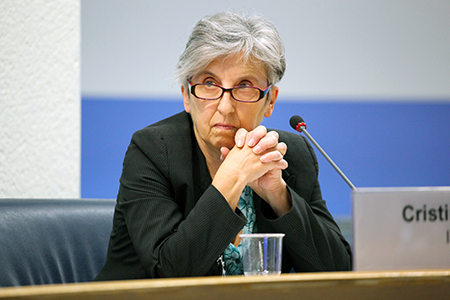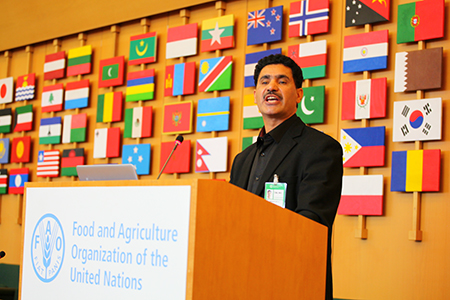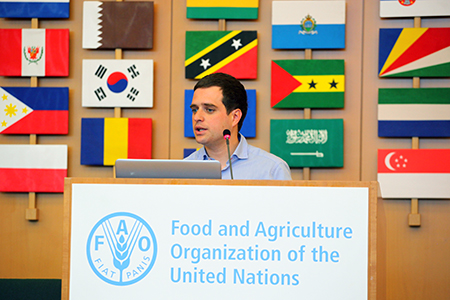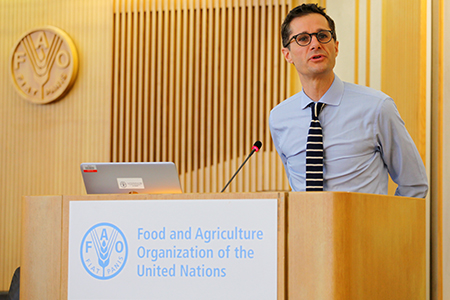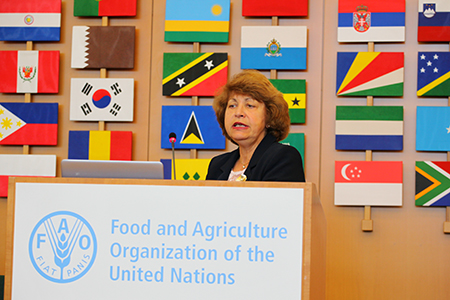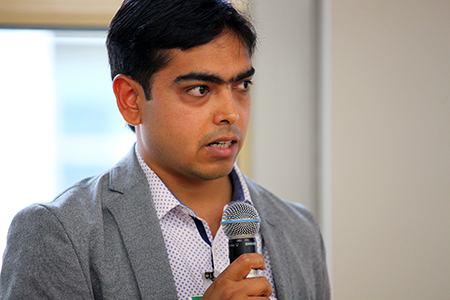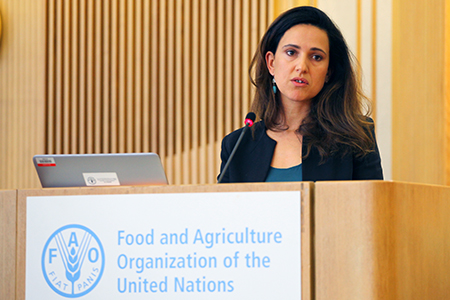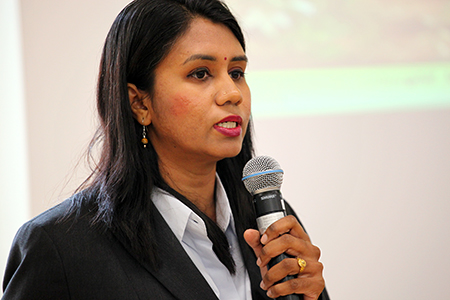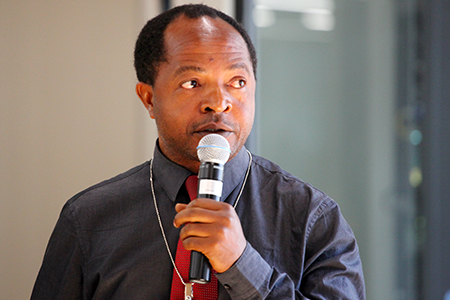|
On Friday, participants in the Global Symposium on Soil Pollution (GSOP18) met in parallel sessions in the morning to address: drivers of soil pollution in non-agricultural soils; risk assessment of soil pollution on the environment and human health; and state of the art remediation techniques of polluted sites. This was followed by parallel sessions where participants exchanged opinions and ideas on the way forward on the four Symposium themes.
In the afternoon, in plenary, theme chairs provided an overview of the main session outcomes and key messages, followed by an interactive panel discussion, with all major stakeholders represented in the panel.
In his closing speech, Ronald Vargas, Global Soil Partnership (GSP) Secretariat, FAO, announced plans for establishing working groups on developing guidelines for assessing, mapping, monitoring, managing, and reporting on soil pollution. Noting that “soil pollution is a reality and should not be hidden or ignored any longer,” he called for a multidisciplinary approach to address the problem.
Melisa Lim, Secretariat of the Basel, Rotterdam, and Stockholm Conventions, underscored the need to prevent soil pollution, rather than finding ways to mitigate it. Mette Wilkie, Director, Ecosystems Division, UN Environment, stressed that the Symposium promoted research and development, strengthened the science-policy interface, improved knowledge dissemination, and promoted a coordinated effort to combat soil pollution.
Luca Montanarella, Chair, Intergovernmental Technical Panel on Soils, addressed the challenges of bringing together scientists and policy-makers, stressing the importance of a roadmap for future actions. He explained that part of this roadmap will be the Symposium’s outcome document ‘Be the Solution to Soil Pollution,’ to be prepared by ITPS and the cooperating agencies. René Castro Salazar, Assistant Director-General, Climate, Biodiversity, Land, and Water Department, FAO, noted that “the optimist invented the plane and the pessimist the parachute,” stressing that “we need everyone on board to convey the message that there is no time to waste.”
Moderator Lucrezia Caon, GSP Secretariat, FAO, thanked all participants and closed the Symposium at 5:12 pm.
|
|


